


GWP Central America, with the support of the Legislative Assembly of El Salvador, organised the VIII Legislators Conference on Water Resources, which took place on October 28, 2014, in San Salvador.
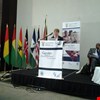
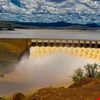
A presentation on “Financing water resources management and development for River Basin Organisations” was made during the 6th RBO Workshop held 15th to the 17th of October 2014 at Birchwood Hotel, Johannesburg. The presentation is based on 13 country studies on “Financing Water Resource Management in SADC” which was commissioned by the SADC/GIZ Transboundary Water Resources Management Programme, to deepen the understanding of investments in water resources management and development and to create arguments to increase these investments in SADC countries.
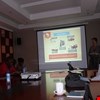
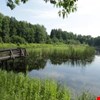
Coinciding with the 12th European Conference EUROPE INBO 2014, on 12 November 2014 GWP Central and Eastern Europe is releasing a new video on Small Water retention measures.


The All-Russian scientific-practical conference "Water Management in Russia: Achievements, Problems and Prospects" was held on October 7-9, 2014 in Yekaterinburg.

On 29 October 2014, GWP Central and Eastern Europe is realeasing a new video at the European River Restoration Conference 2014 to trigger a debate on public participation in water management.
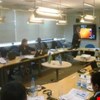
The Planning meeting on Model Capacity Training Program organized by GWP CACENA jointly with World Bank was held in Tashkent, Uzbekistan on October 15-17, 2014.
